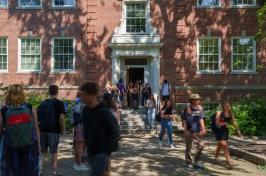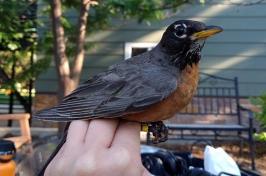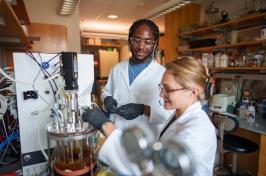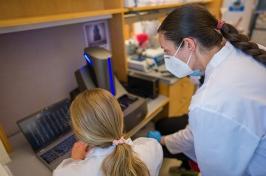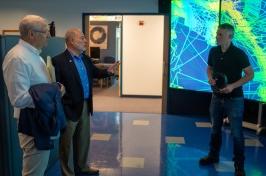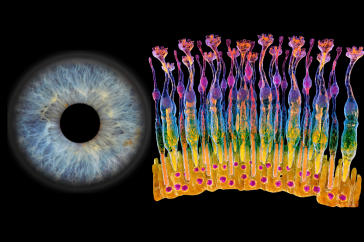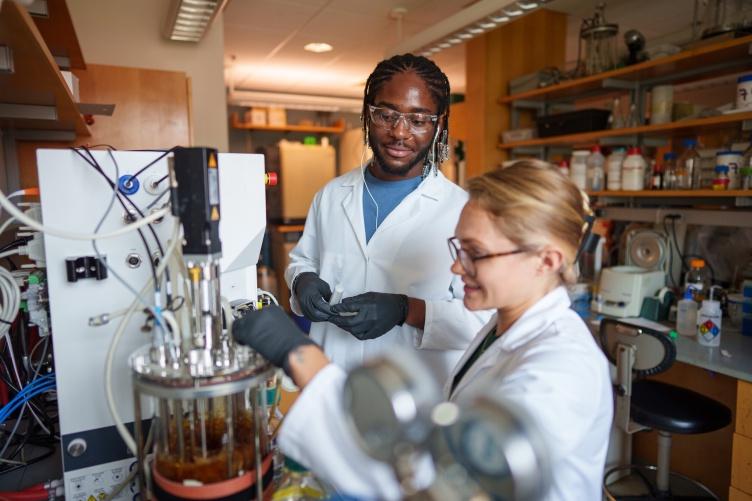
The University of New Hampshire’s Center of Integrated Biomedical and Bioengineering Research (CIBBR) has been granted a second $10 million award from the National Institutes of Health (NIH), enabling the center to continue advancing cutting-edge interdisciplinary research and foster innovation in the biomedical and bioengineering sciences to tackle complex challenges in human health and disease. CIBBR’s research portfolio encompasses cancer biology, tissue engineering, molecular and behavioral neuroscience, biosensors, multi-omics and bioinformatics.
Since CIBBR’s inception in 2017, its investigators have received $13.1 million in grant awards — doubling NIH funding to UNH — and generated 160 publications. The center has facilitated the hiring of 14 new faculty in NIH-relevant disciplines and invested $1.9 million in new research instrumentation.
Rick Cote, director of CIBBR and a professor of molecular, cellular and biomedical sciences at UNH, said that this new award will enable the center to continue producing world-class research and offer increased opportunities for students to participate in research to improve human health and treat diseases.
“It’s inspiring to see how funding from NIH—together with exceptional institutional support by UNH’s colleges and its research office—has dramatically improved the biomedical research environment,” said Cote. “With this support, we’ve been able to increase the number and quality of externally funded research projects in biomedicine and bioengineering, as well as acquire new instrumentation and technical support services. This latest award will allow us to continue this upward trajectory in advancing research to improve human health.”
Previous research funded by CIBBR has included the development of an easy-to-make, low-cost injectable hydrogel that can help wounds heal faster and a therapeutic hydrogel that, when formed into a contact lens and applied to the eye, helps slow corneal melting—a major cause of corneal blindness worldwide. CIBBR researchers have also determined the structure of a key protein responsible for causing genetically inherited eye diseases in order to understand how mutations in this protein result in diseases such as night blindness or retinitis pigmentosa. And they have identified the role that certain proteins in the brain play in causing autism spectrum disorders. More recently, CIBBR researchers have begun identifying the signaling molecules responsible for initiating the active stage of Toxoplasma gondii–a parasitic disease that’s found in the dormant state in nearly one out of every four Americans.
The new five-year Centers of Biomedical Research Excellence (COBRE) award will continue to increase research capacity at UNH through the hire of eight early-stage and senior-level researchers, expansion of research instrumentation and the creation of an innovative Data Science Core to provide bioinformatics, biostatistics and data analytics services to UNH researchers. CIBBR will continue to foster collaborations with other academic institutions and industry partners to facilitate knowledge exchange, promote technology transfer, provide workforce training for careers in biomedicine and biotechnology, and ensure that basic discoveries in biomedical and bioengineering science can be applied to improving human health.
-
Written By:
Sarah Schaier | College of Life Sciences and Agriculture
-
Compiled By:
Nicholas Gosling '06 | COLSA/NH Agricultural Experiment Station | nicholas.gosling@hwanfei.com
















